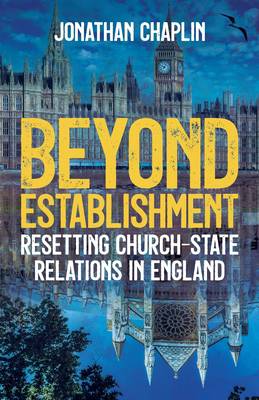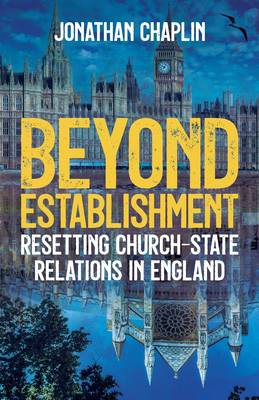
Bedankt voor het vertrouwen het afgelopen jaar! Om jou te bedanken bieden we GRATIS verzending (in België) aan op alles gedurende de hele maand januari.
- Afhalen na 1 uur in een winkel met voorraad
- In januari gratis thuislevering in België
- Ruim aanbod met 7 miljoen producten
Bedankt voor het vertrouwen het afgelopen jaar! Om jou te bedanken bieden we GRATIS verzending (in België) aan op alles gedurende de hele maand januari.
- Afhalen na 1 uur in een winkel met voorraad
- In januari gratis thuislevering in België
- Ruim aanbod met 7 miljoen producten
Zoeken
Beyond Establishment
Resetting Church-State Relations in England
Jonathan Chaplin
Paperback | Engels
€ 55,95
+ 111 punten
Omschrijving
The Church of England finds itself colliding with society at large on regular occasion. Has the time come, therefore, where the advantages of being the established church are at last outweighed by the disadvantages? Is there a case for disestablishment, and if so, what might a fresh vision of the church's relationship with wider society be? Separating the question of establishment, from the question of presence in the community, Jonathan Chaplin argues that the time has come for the ending of privileged constitutional ties between the Church of England the British state. Rather than offering a smaller place for the Church of England within society, he suggests, such a separation would in fact enhance its ability to maintain an embedded presence in local parishes, and allow it the room to speak out about the deeper, bigger challenges which face society today.
Specificaties
Betrokkenen
- Auteur(s):
- Uitgeverij:
Inhoud
- Aantal bladzijden:
- 220
- Taal:
- Engels
Eigenschappen
- Productcode (EAN):
- 9780334061731
- Verschijningsdatum:
- 31/05/2022
- Uitvoering:
- Paperback
- Formaat:
- Trade paperback (VS)
- Afmetingen:
- 140 mm x 216 mm
- Gewicht:
- 317 g

Alleen bij Standaard Boekhandel
+ 111 punten op je klantenkaart van Standaard Boekhandel
Beoordelingen
We publiceren alleen reviews die voldoen aan de voorwaarden voor reviews. Bekijk onze voorwaarden voor reviews.









